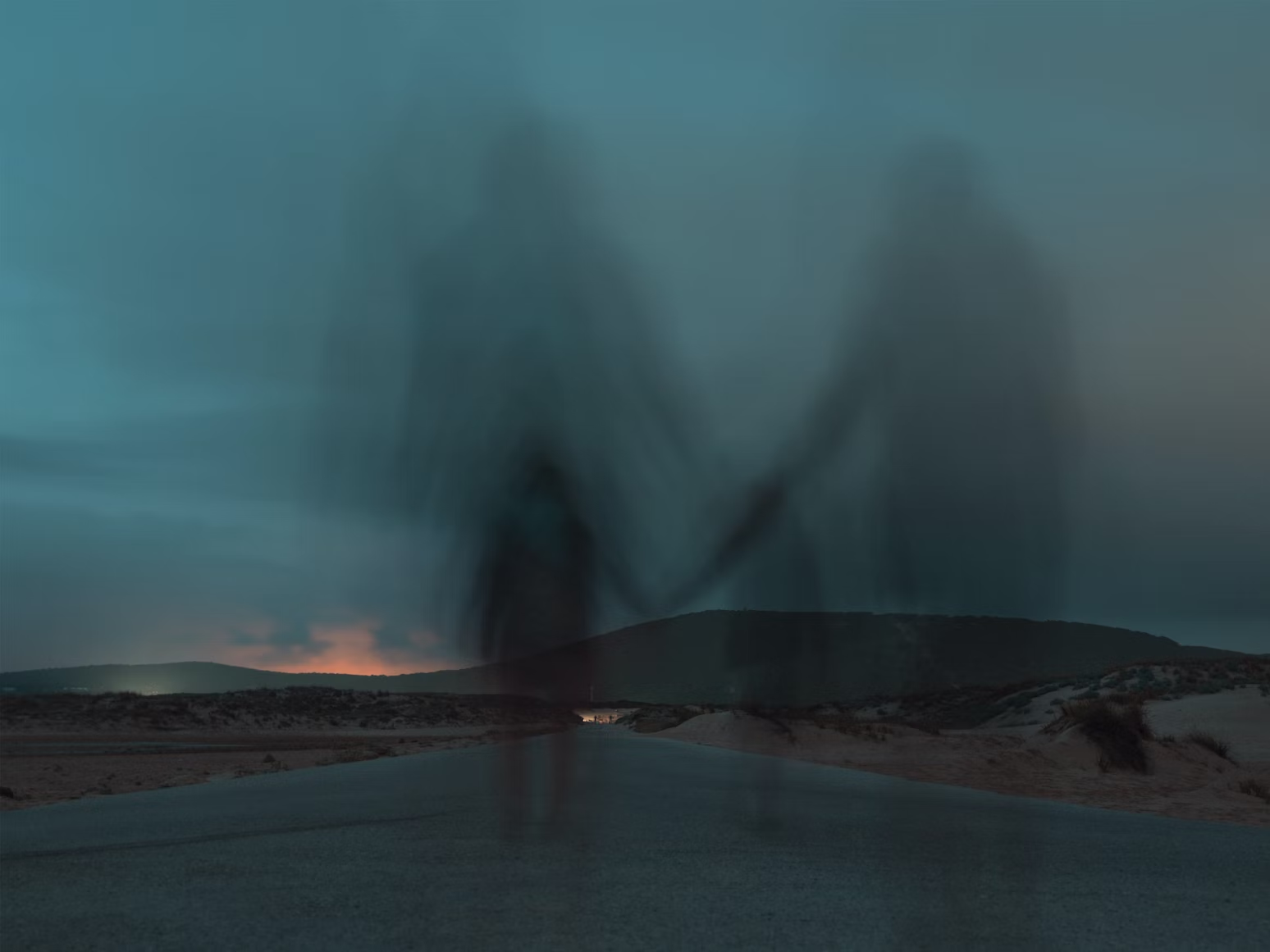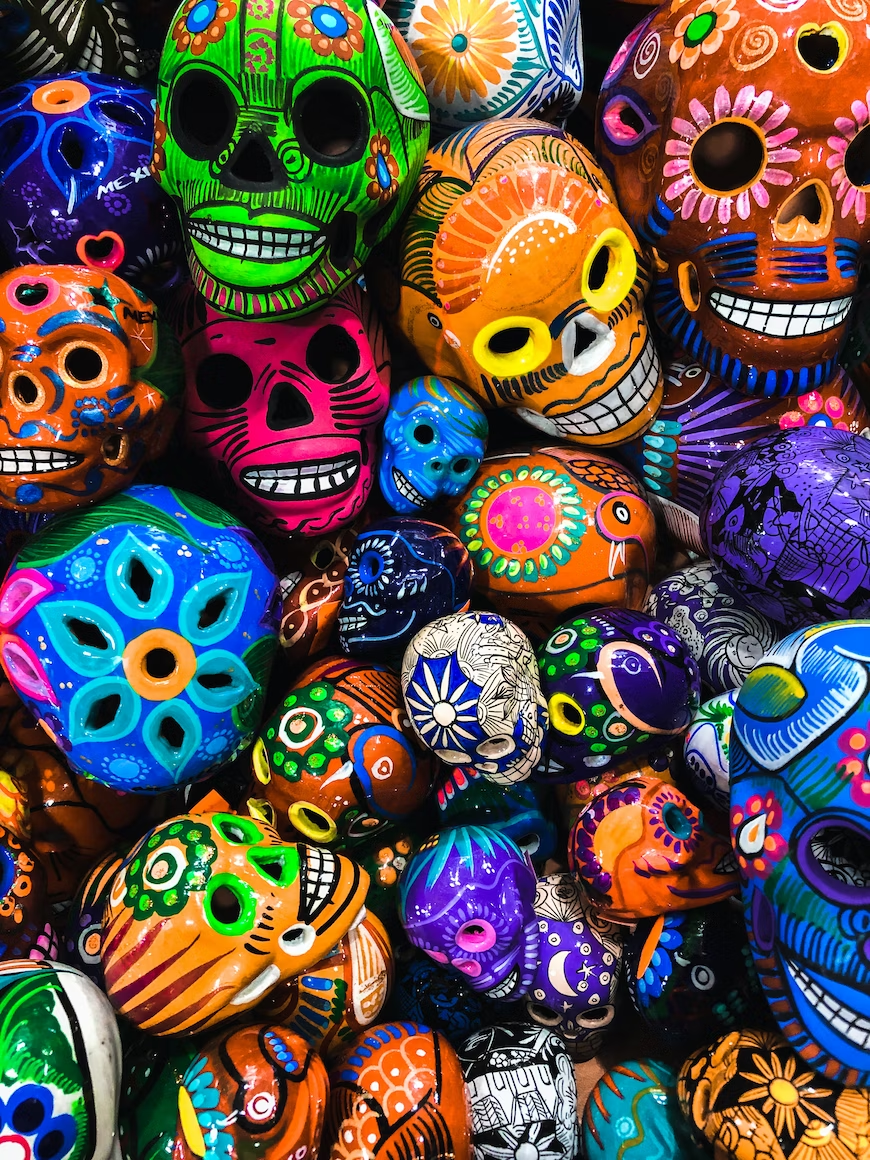Ghosts in Mexico
Why do Mexicans believe in ghosts? Is such a belief incompatible with science and rationality?
The second in a three-part series on religion and beliefs in Mexico. In part 1 we asked whether Mexican religion is in decline.
May 2023
“I was driving one night and saw a woman, in a field, floating. She was wearing all white. I could tell she was floating because she was in a field with bushes and grass yet her white dress did not get caught. I at first couldn’t believe my eyes but there she was. I went home and did not think too much more about it. Then a couple days later I heard neighbors saying they had heard the Llorona the same night that I saw the woman in the field. I realized that what I had seen was, indeed, the Llorona,” says José about a night over 30 years ago.
The Llorona is a Mexican legend (or true story?) of a woman who drowned her children and, regretful and shamed for this, wanders Mexico looking for her deceased children. As she wanders Mexico, her startling wails can be heard wherever she roams.
José speaks with total conviction as his wife, Maria, listens and nods with equal conviction. José then stops suddenly and says leyendas like the Llorona are quite common in Mexico. I notice he uses the word leyenda, or legend. He seems to be saying both that it happened but that it is a legend. A legend, by definition, is a story loosely based on what is believed to be a real event but that takes on fictitious, larger-than-life elements over time. I get the urge to ask what is the legend and what is the fact but stop myself. I do not want José to think I am challenging him.
The conversation turns to a discussion of other spirits that still haunt the living world. José tells us that his family once rented a room to a woman who left after one week. She left because she claimed the room was haunted. The fear of the haunted spirits kept her up at night.
After the woman left, José, his daughter-in-law Mariana, and a friend went to the room to do repairs. José’s friend did not know the woman left because the room was haunted. His friend was working on a pipe repair and, after a few minutes, called José. He was sure someone was in the room with him. “Who was it?” the friend asked. José immediately realized that it was the haunted spirit from which the woman had fled. Mariana, who has joined our conversation, nods in agreement and adds a few details to the story.
Maria, José’s wife, then tells a story about how her sister had seen visions of living family members in places they were physically not present. For instance, her sister saw her son sleeping on a couch when in fact he was reading in his room on a different floor of their home. I asked Maria how this could be true. She said, without hesitating, “Because the stories are true.” José looks more dispassionate and says, “Many people believe in this here.”
While everything Maria says throughout our conversation shows a firm belief in these stories, José’s position appears more ambiguous. He tells stories of having encountered spirits but then talks about the spirits more distantly, saying they are popular beliefs. One could interpret José’s dispassion as lack of belief yet he is the one who saw the Llorona and had evidence of spirits in the rented room and had no problem saying so.

Or perhaps José is catering to his audience, assuming we are incredulous. He is not trying to convince us of his stories but rather giving us his facts about what he saw and his culture.
During our conversation with José and Maria, we ask questions that display genuine interest but I make sure not to say anything that would show disbelief in their stories. The conviction with which they tell the stories starts to make me wonder if they could be true, too.
Back in the United States, I ask a Mexican-American friend if she believes in ghosts. Even though she leans toward not believing in ghosts, she says she is not sure. Having grown up with ghost stories in her family, it is hard to outright reject ghosts. I also ask why ghost stories are so common in Mexico. “If people have these encounters with ghosts it confirms a lot of our cultural stories. Like the Llorona and others. It makes it less of a myth and something that people can actually come across. The idea of ghosts is also just fascinating.”
The belief in ghosts dates to before the Spanish arrival. The Llorona and other common legends have roots in indigenous traditions. These legends are a few of the examples of how Mexico’s culture is firmly linked to its indigenous past.
And given the influence of indigenous culture, it is not surprising the belief in spirits and ghosts is widespread in Mexico. A 2011 study found that over 70 percent of Mexicans trust magic more than science. Indeed, José and Maria are both university graduates and avid readers of many different types of books. Mariana is in her mid-30s and a graduate of UNAM, Mexico’s top university. The belief in the supernatural is not simply the realm of those without an education; it lives in every corner of Mexican life.
As the Mexican psychologist Pablo Fernández Christlieb stated to the Mexican publication El Financiero, “It is curious that, while science or universities always say everything has an explanation and can be understood, people — even those who study literature and science — suddenly can become sad or nostalgic and say ‘I wish there was something we can’t understand as this would make life more interesting’.”
Fernández Christlieb also argues that a belief in ghosts is a consolation for the loss of a loved one. In Mexico and across other parts of Latin America, Día de los muertos (Day of the Dead) is celebrated in early November. Families erect offerings in memory of their deceased loved ones with the belief that they will return for a visit (parts of the Dia de los muertos are also based in indigenous traditions).

While Mexico is a country with an exceptionally strong belief in the supernatural, it is widespread across humanity — including in the West. A 2019 survey showed over 45 percent of Americans believe in ghosts and a 2014 survey showed over half of the English do as well. Lower numbers than Mexico, yes, but they clearly show that belief is widespread and is actually rising in the United States. Mexico’s cultural traditions lead to a greater belief in ghosts and spirits; however, humans in general are predisposed to these beliefs. Indeed, the Mexican psychologist Fernnádez Christlieb’s argument that people “wish there was something we can’t understand as this would make life more interesting” and thus believe in ghosts likely applies in any culture.
Ultimately, a belief in spirits and ghosts cannot be seen as a backward, ignorant belief. A belief in science and rationality can go alongside a belief in the supernatural — even if the two are contradictory. Ghosts and spirits remind us that while there is much we do know about our world (the scientific, rational side), there is still a significant part of it we do not understand (the supernatural). Mexico is a nation unafraid to live with these contradictory worlds and embraces it as part of a complex, fascinating and magical world.
Our third and final article on Mexican religion and beliefs will appear in two weeks. The focus will be witchcraft and spiritual healers.
